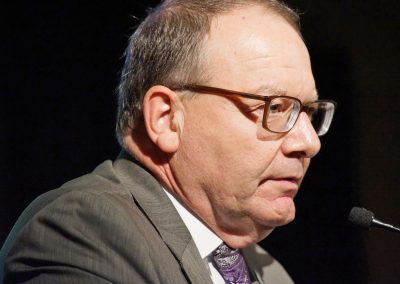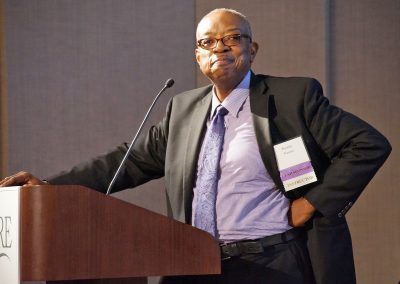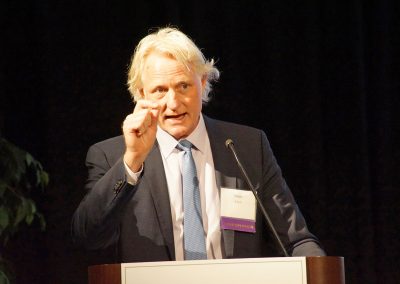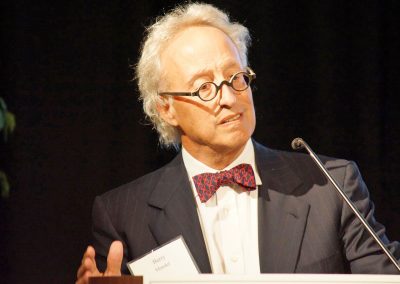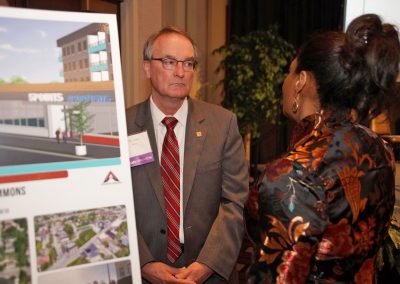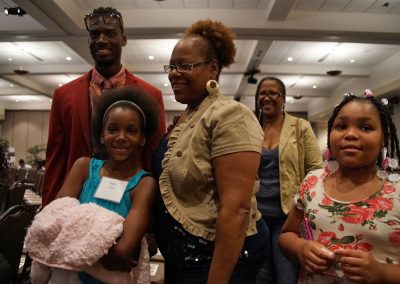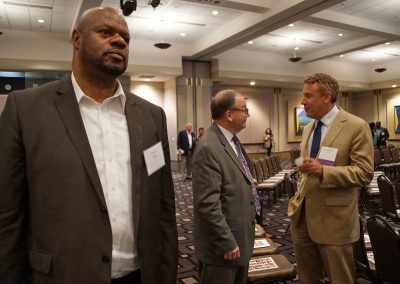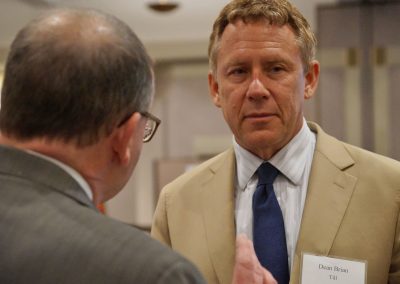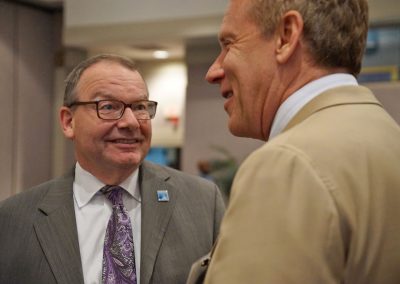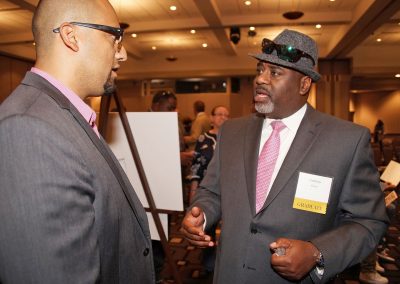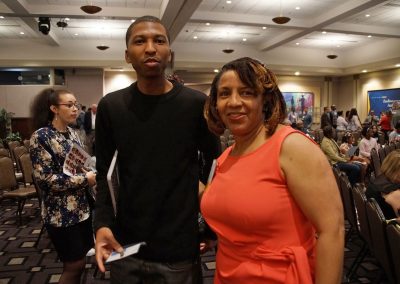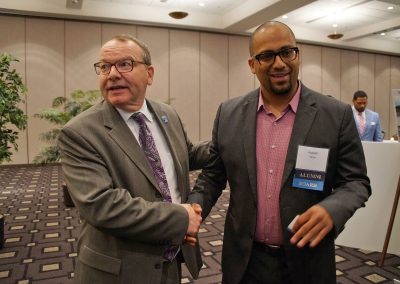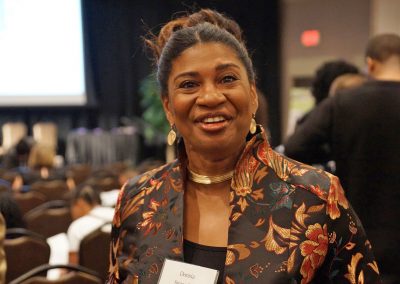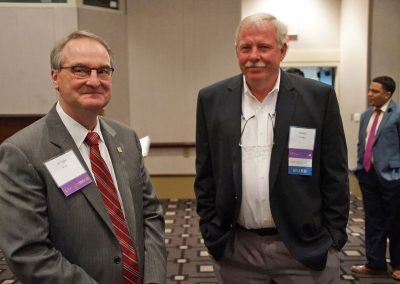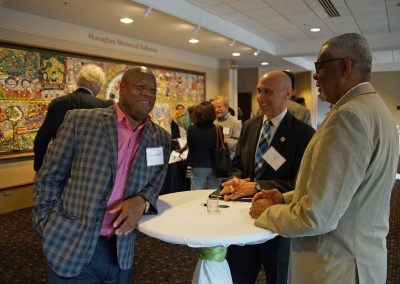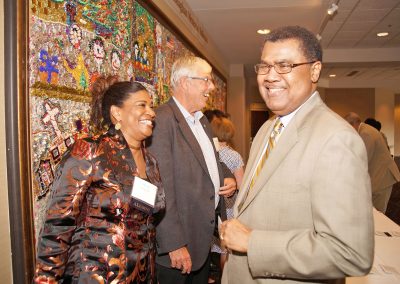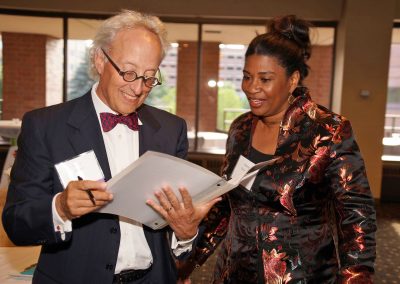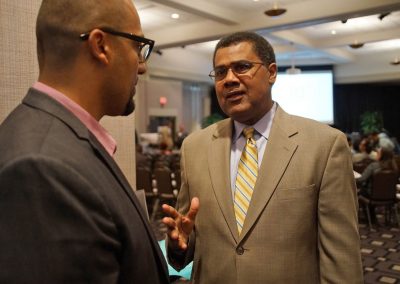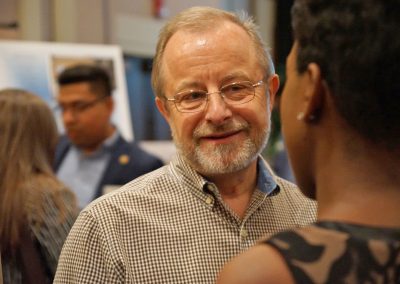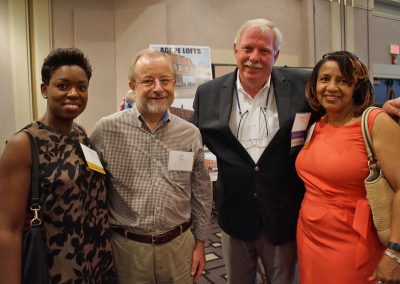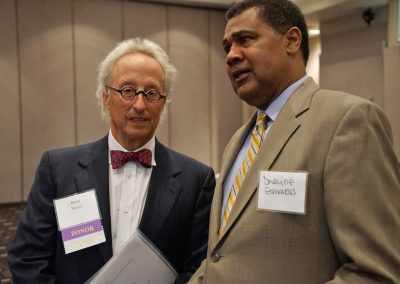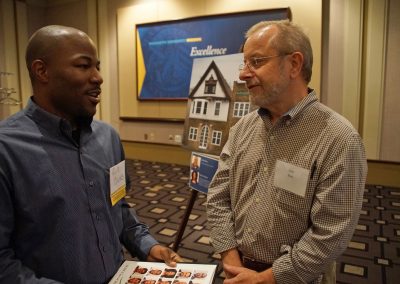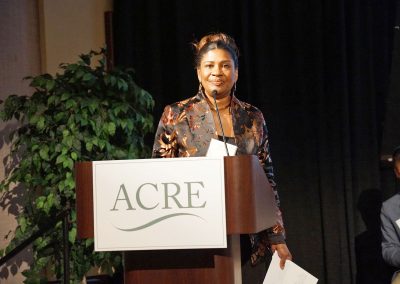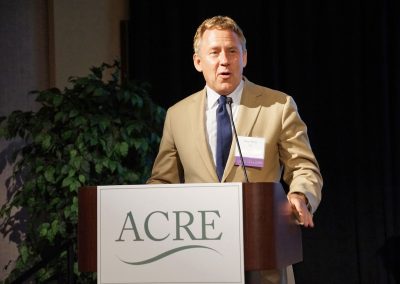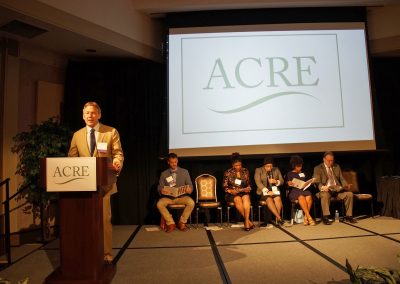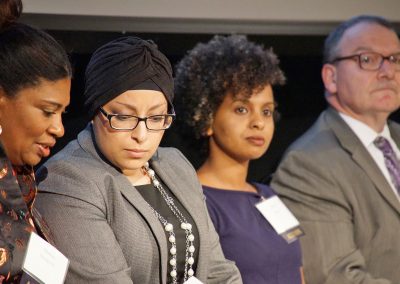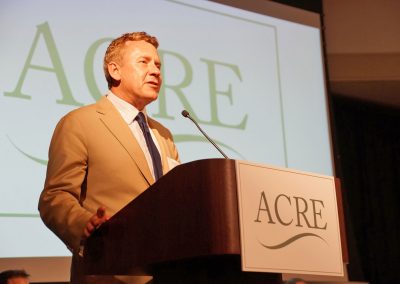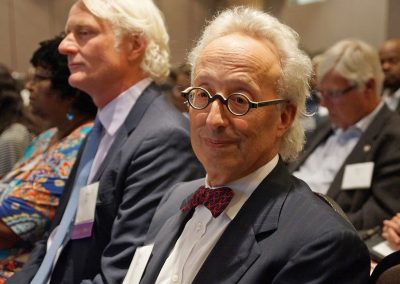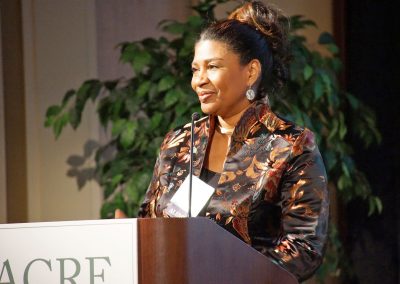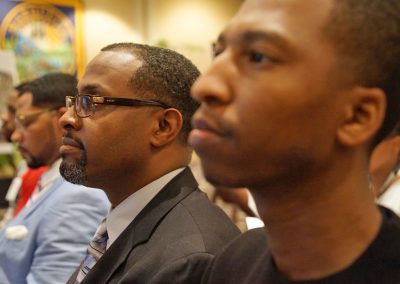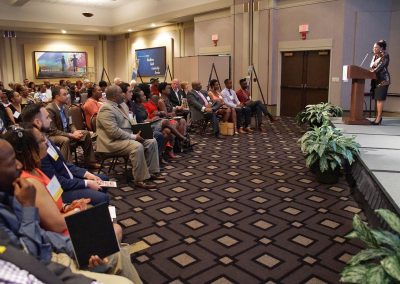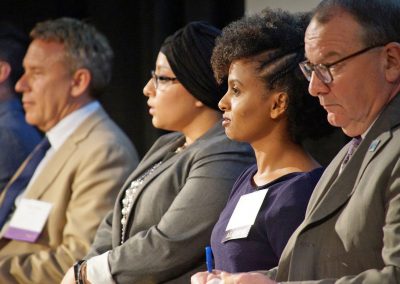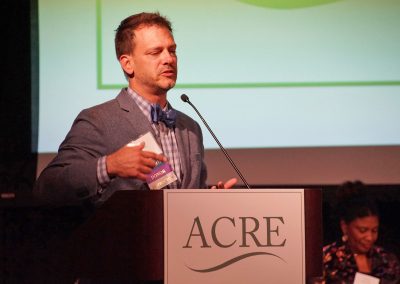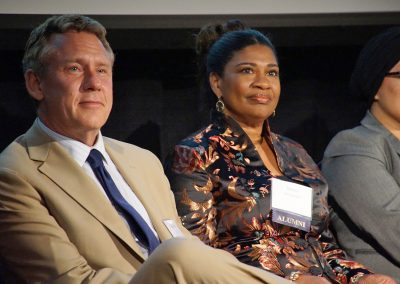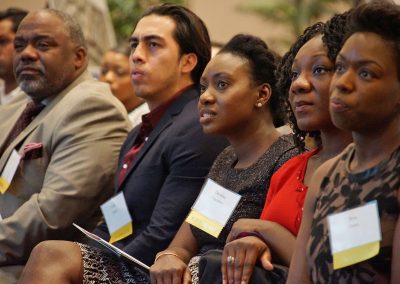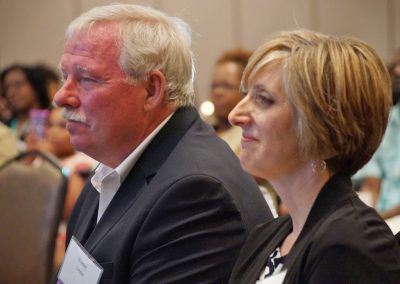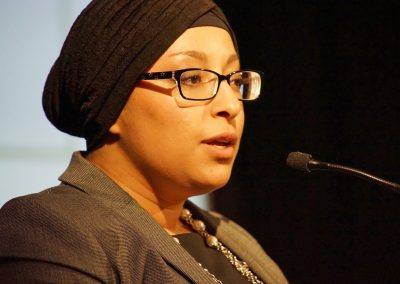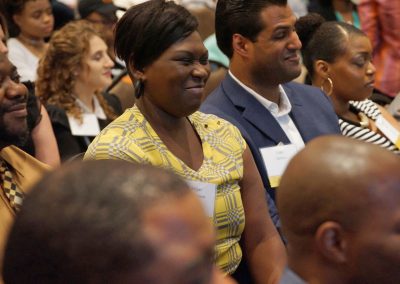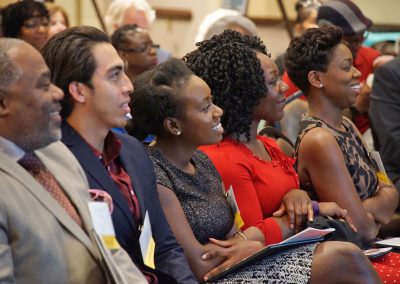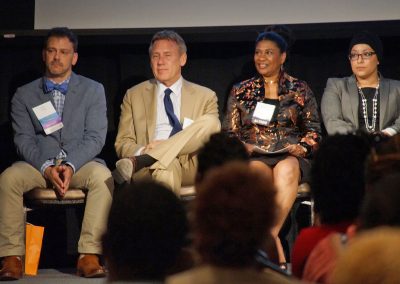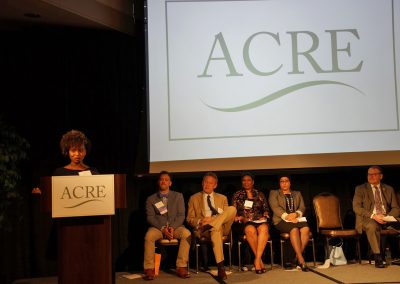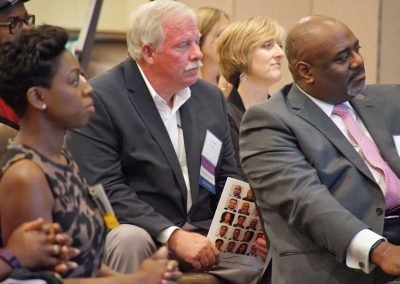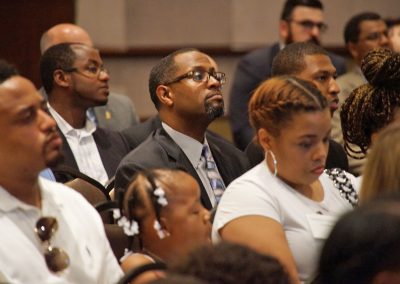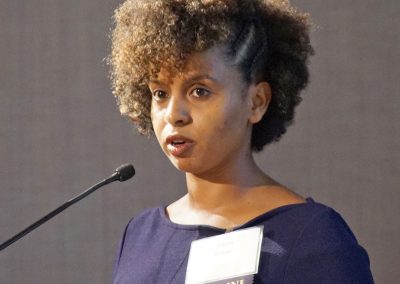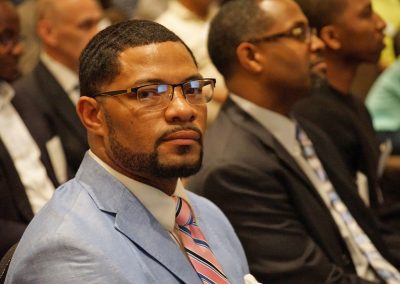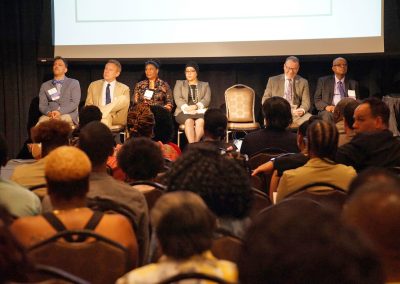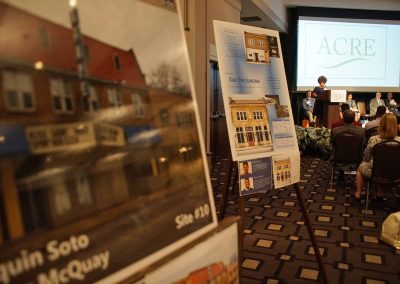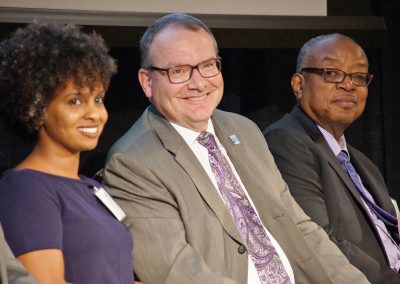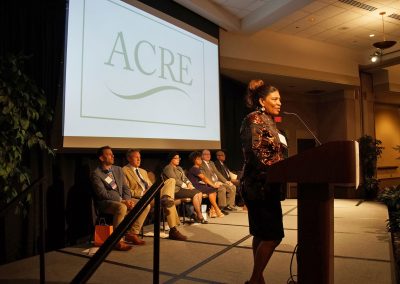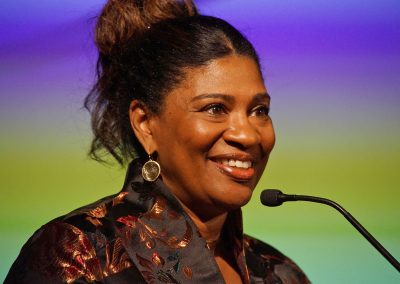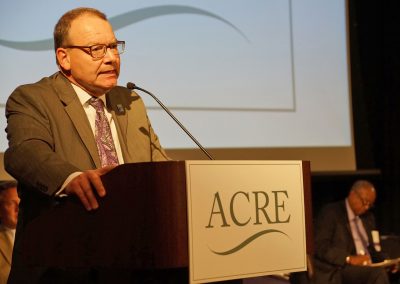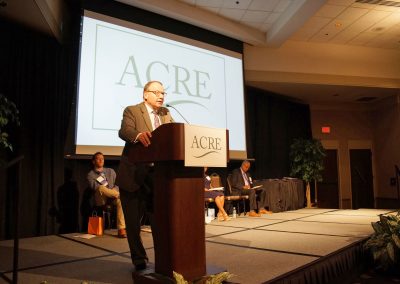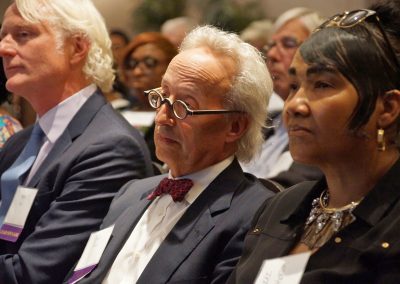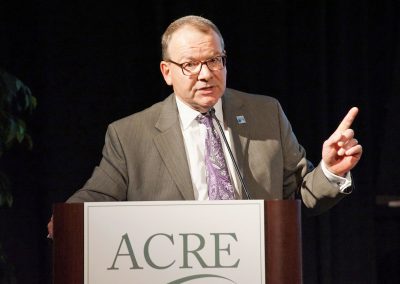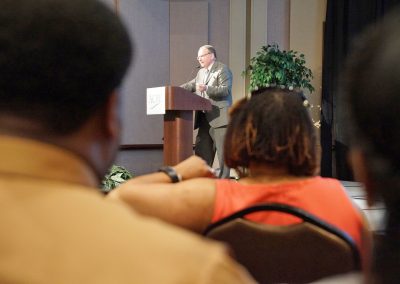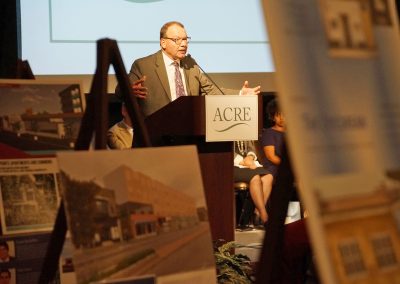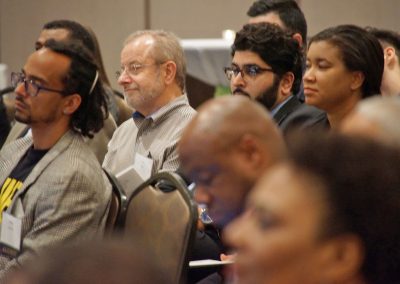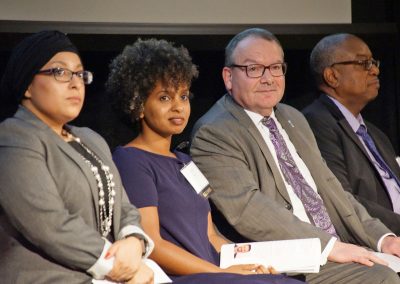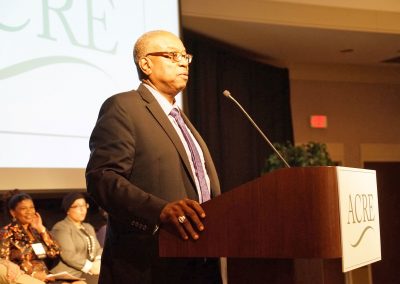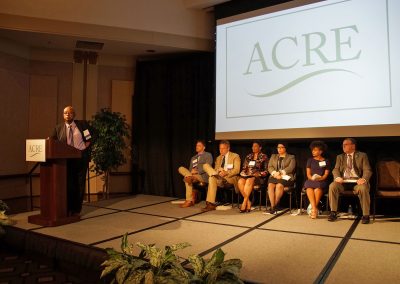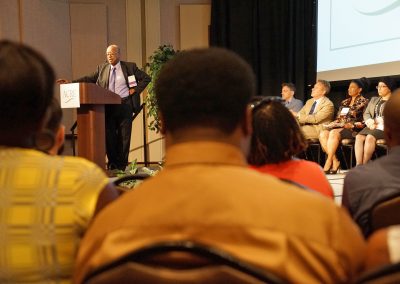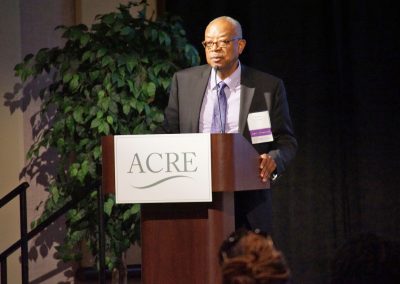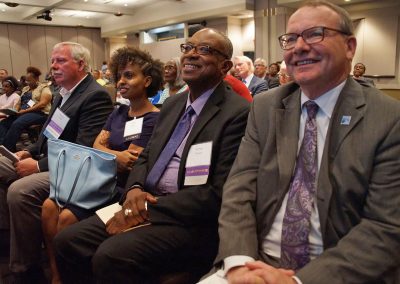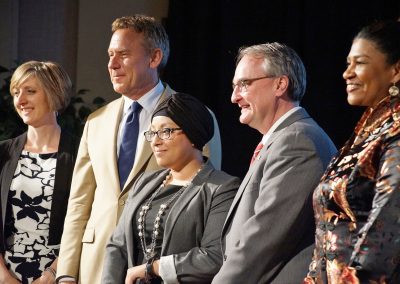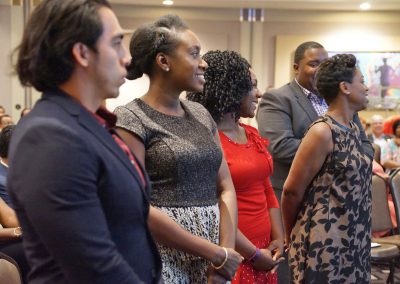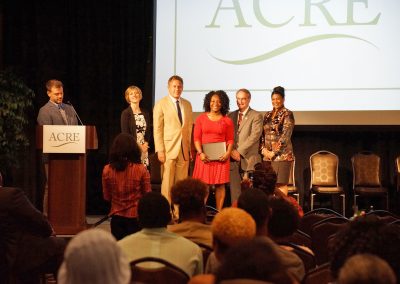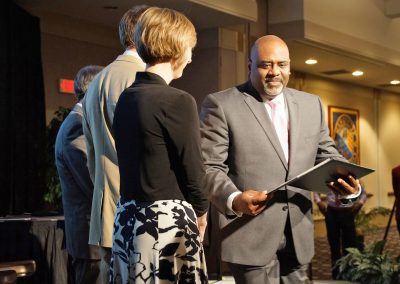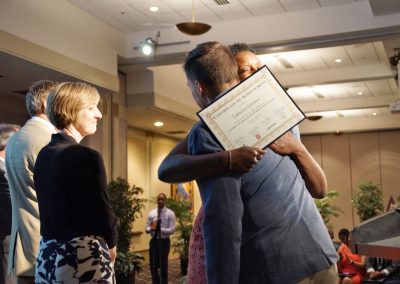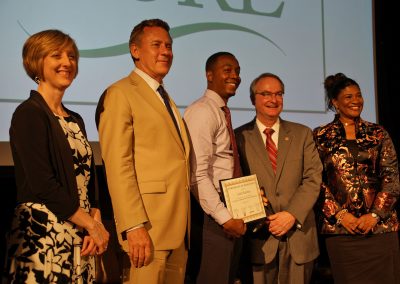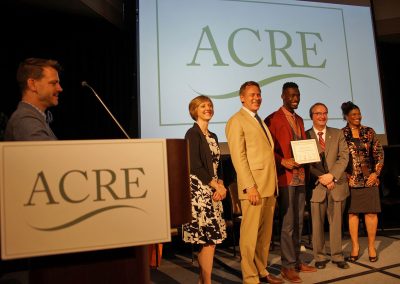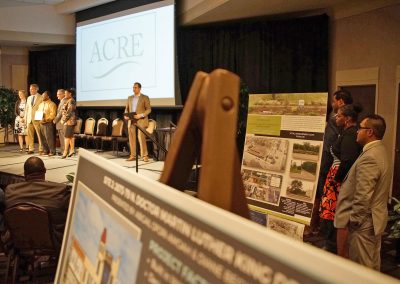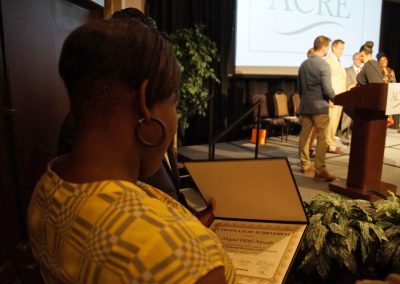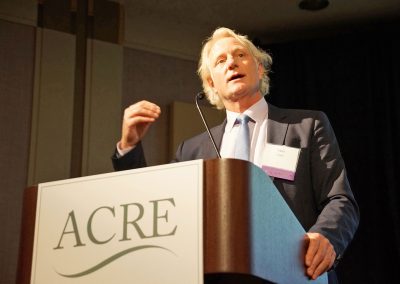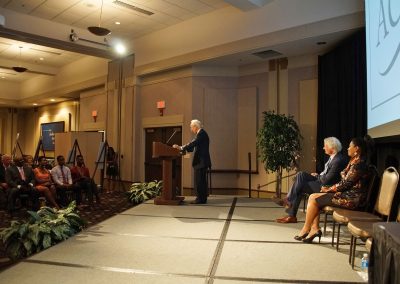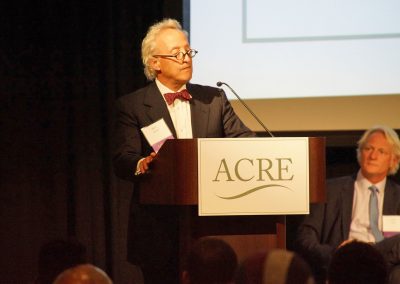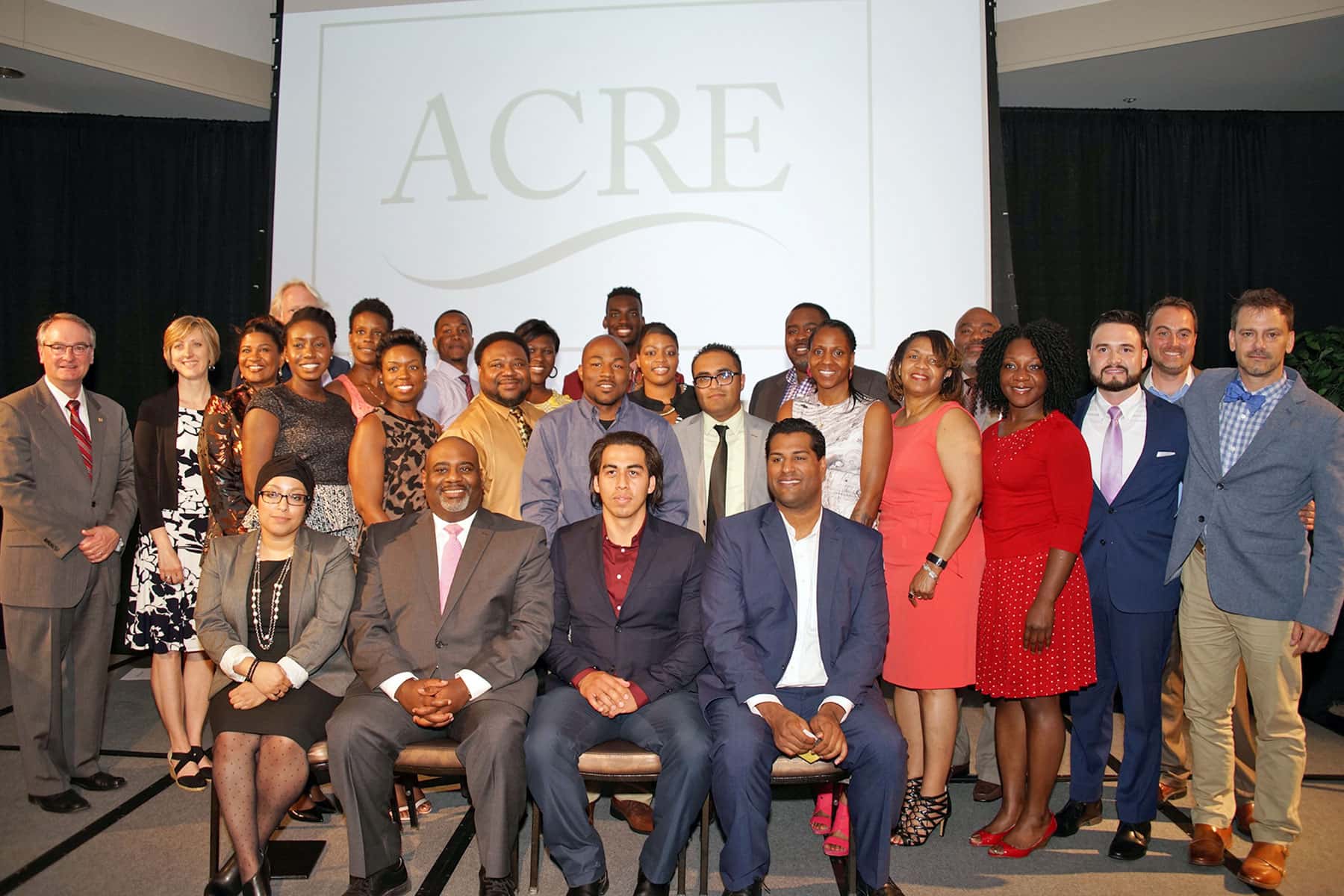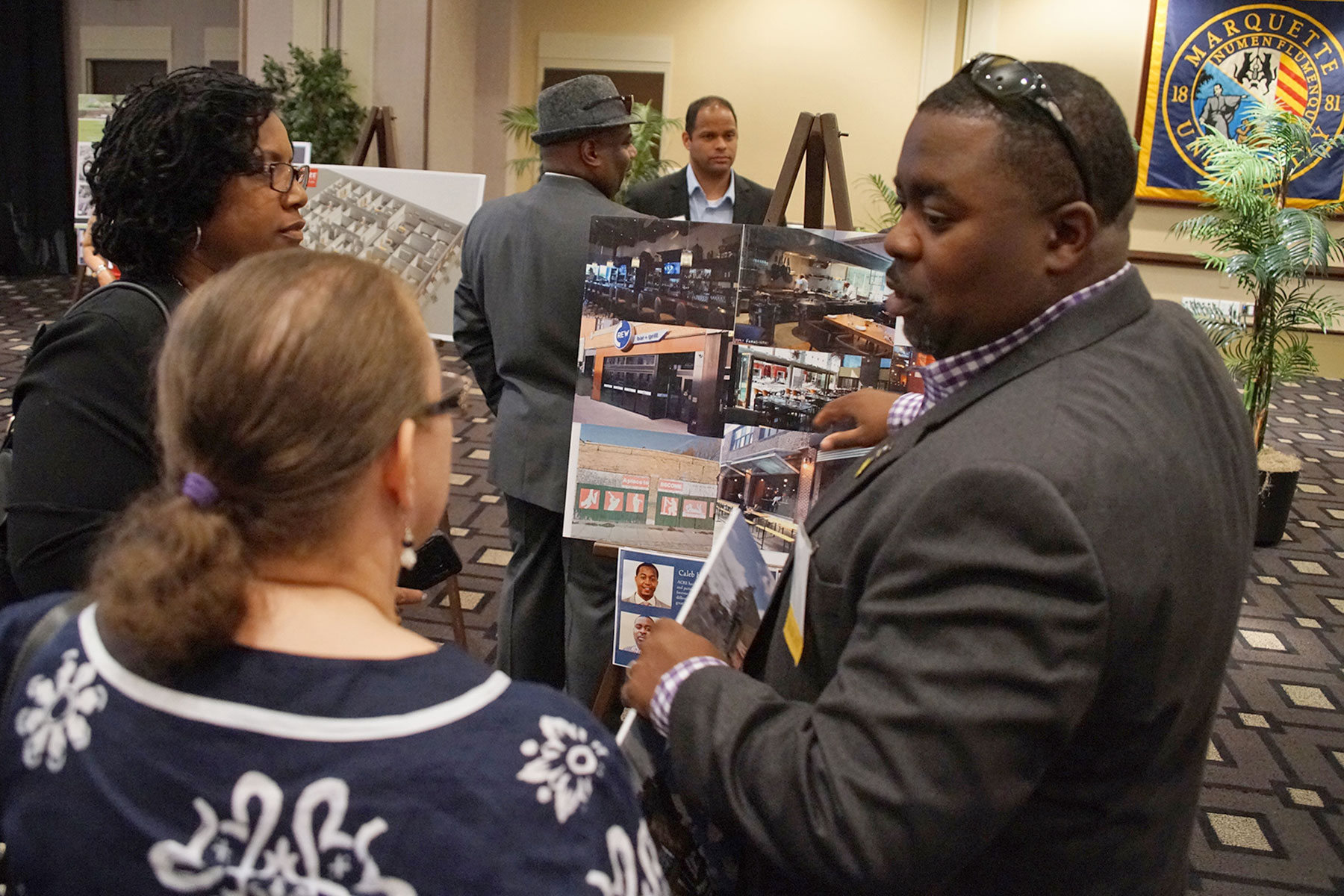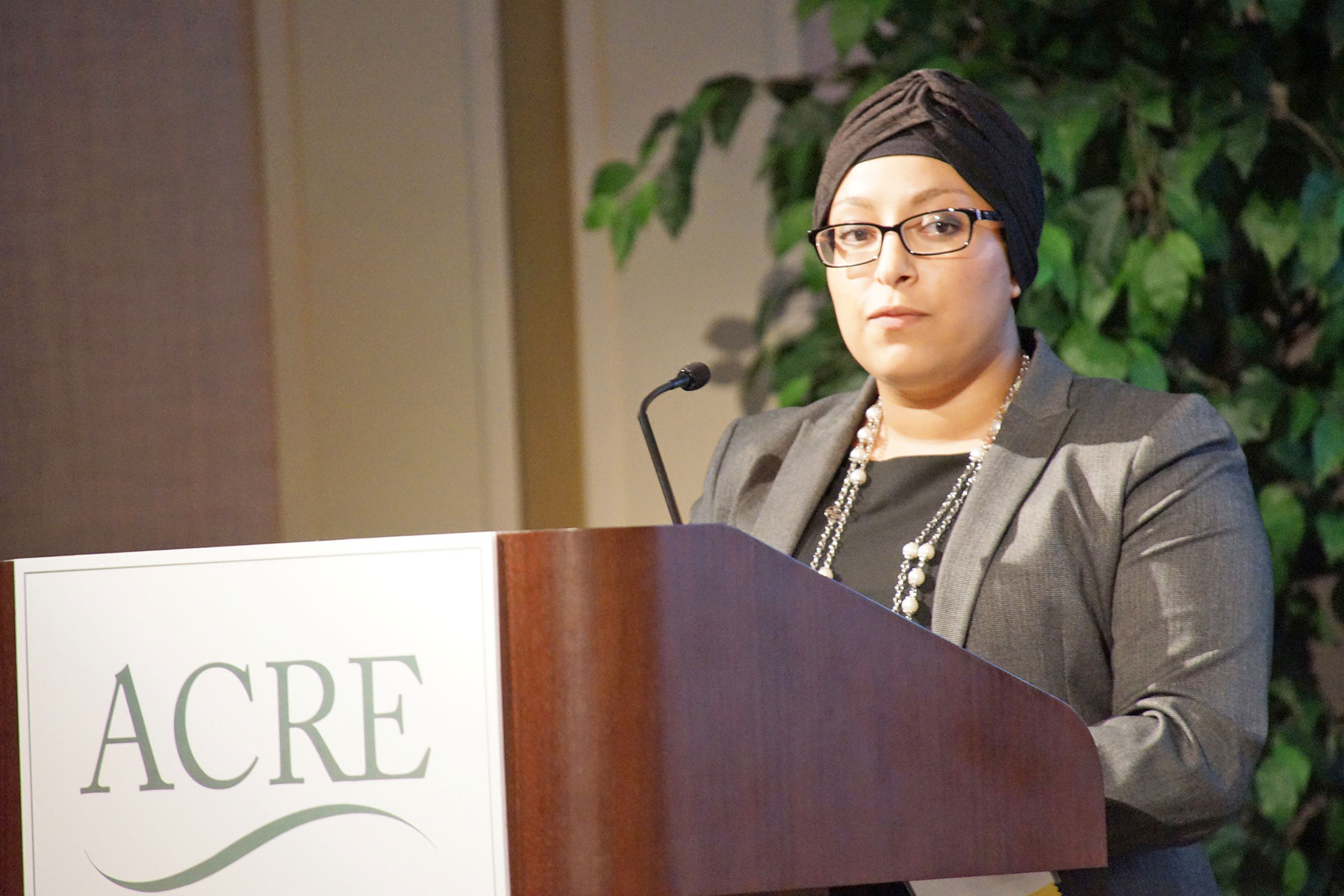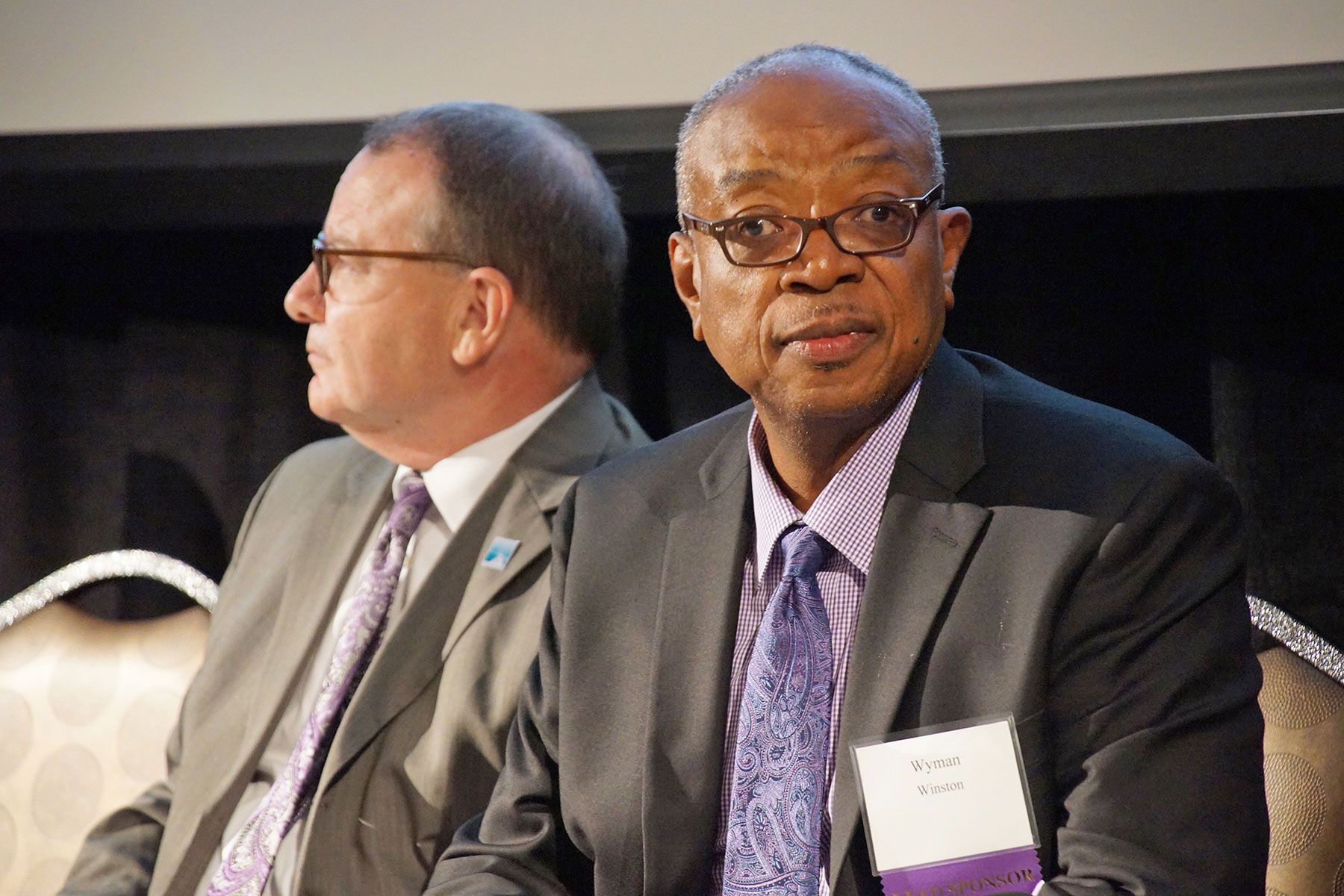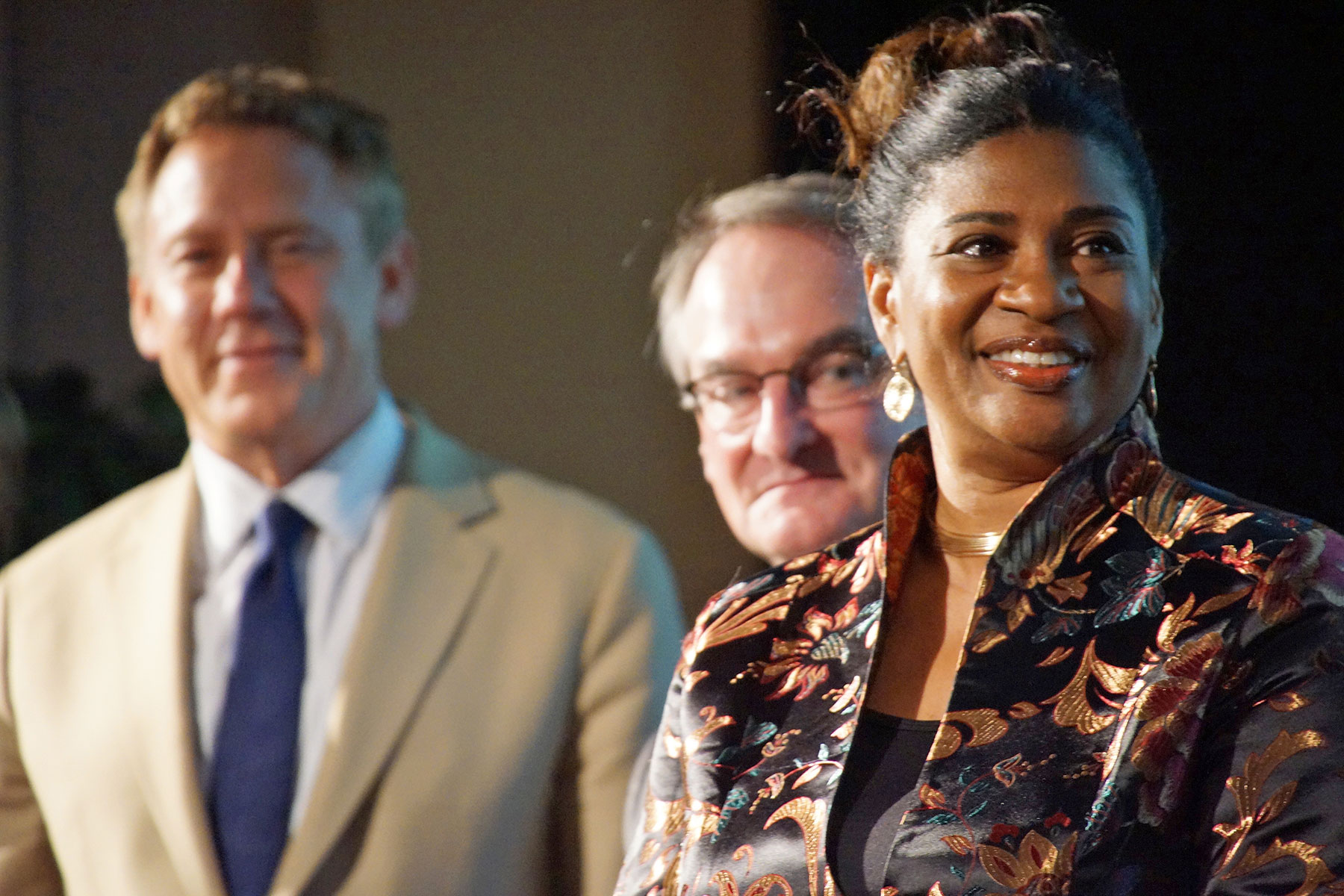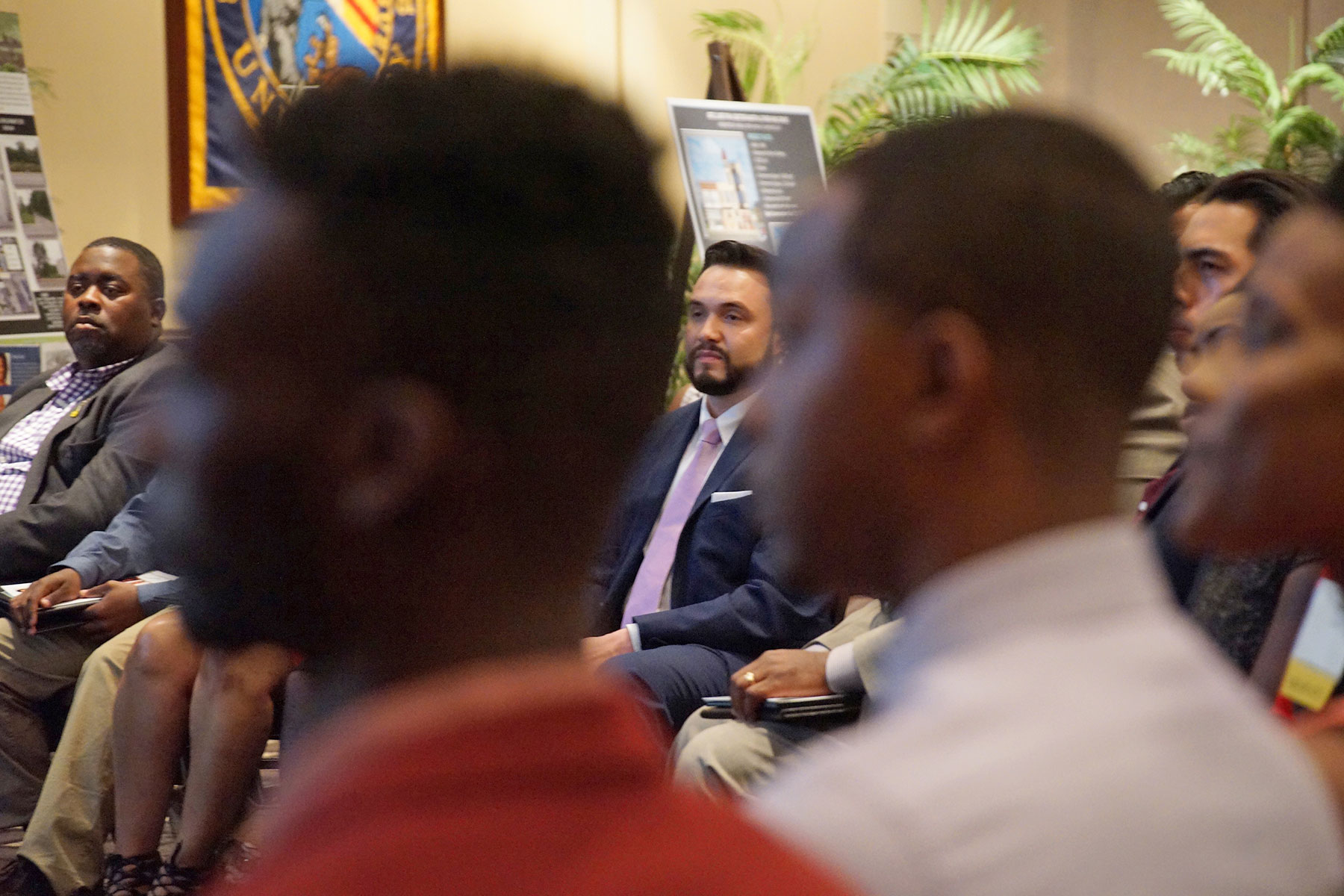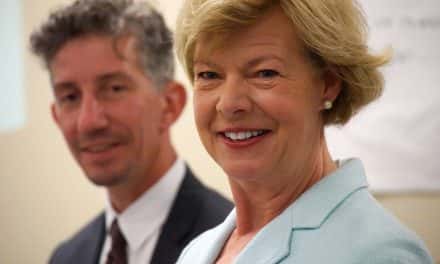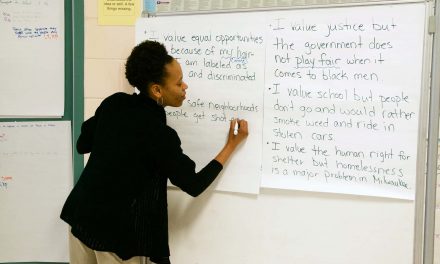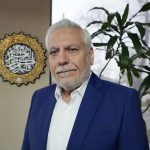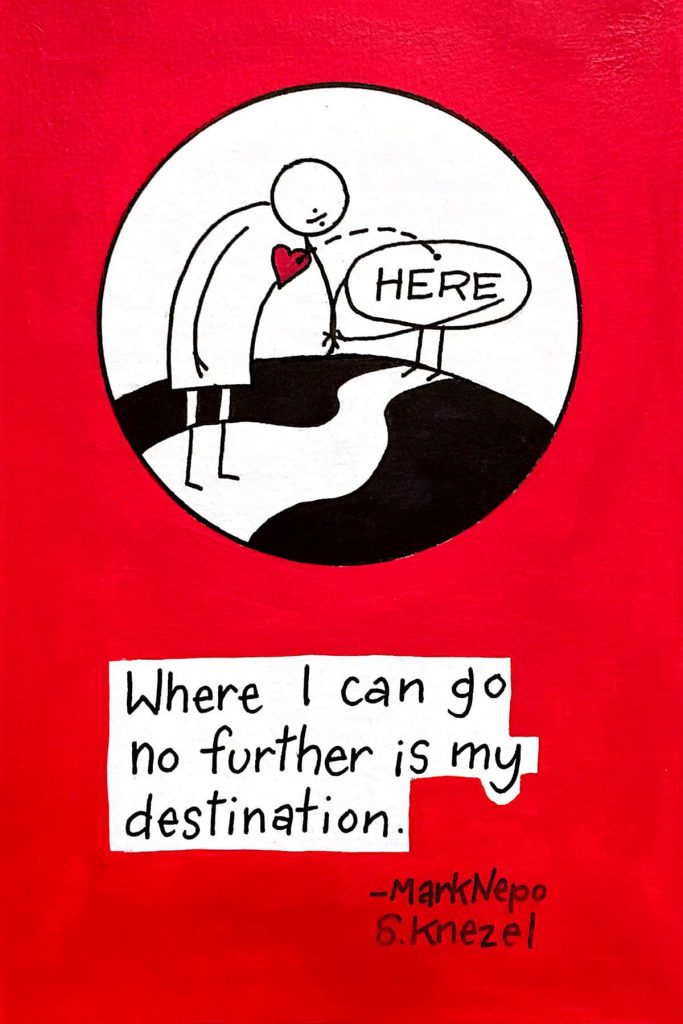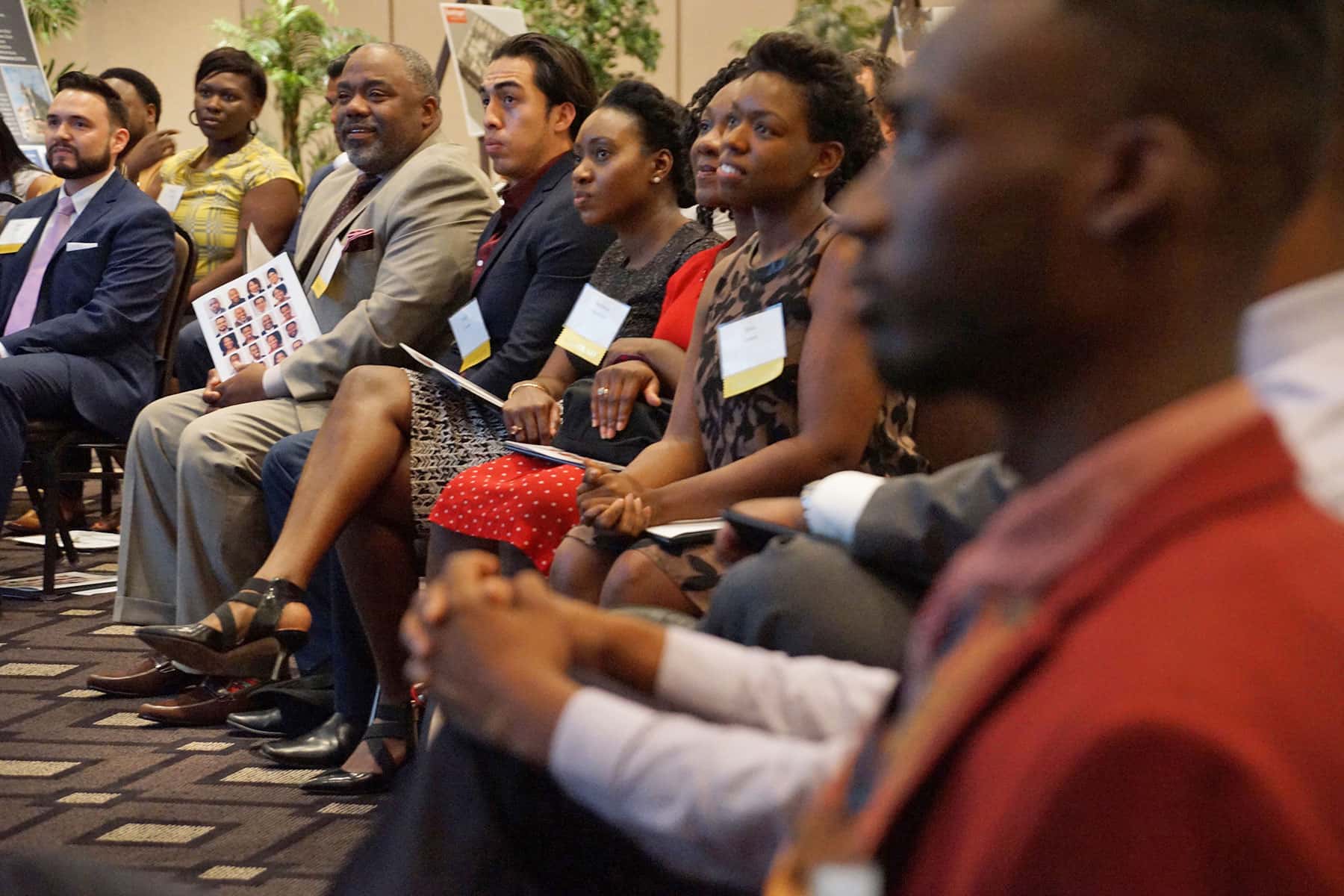
“To accomplish great things, we must not only act, but also dream, not only plan, but also believe.” – Anatole France
“The tragedy of life doesn’t lie in not reaching your goal. The tragedy lies in having no goal to reach. It isn’t a calamity to die with dreams unfulfilled, but it is a calamity not to dream. It is not a disgrace to not reach the stars, but it is a disgrace to have no stars to reach for. Not failure, but low aim is sin.” – Dr. Benjamin E. Mays
– Hank Aaron, attributed quotes from 2012 Marquette University graduation speech
The 2016-2017 class of the Associates in Commercial Real Estate (ACRE) program graduated at a ceremony for friends and family, held at Marquette University’s Alumni Memorial Union on June 13.
The ACRE Program has graduated 220 students have graduated to date, and is an industry-supported initiative that recruits and retains minorities for professional careers in the field of commercial real estate.
“It’s about effecting change, and this city is at a point in its history where change can be affected. We are a minority city, a majority minority city,” said Rocky Marcoux, Commissioner for the Department of City Development. “It’s about time the power structure in the city, the development community in the city, the banking structure in this city, reflects the men and women that are in the city.”
The 26-week program includes instruction from industry professionals, site visits, and hands-on development experience. This year, twenty students of all ages and backgrounds were diverse in terms of race, ethnicity, and gender, enhanced their skills, and are ready to work in Milwaukee and beyond.
“The most important thing is to accept that you can create reality, in this world, in this time. Create and manifest the reality of the type of community you want to see, the type of solutions you want to provide to your customers, and to the markets that you look at,” said Wyman Winston, Executive Director of the Wisconsin Housing and Economic Development Authority (WHEDA). “Do not accept the limitations of the amount of pigment melanin in your skin, or your gender, or any disability you may or may not have, or how others see you. You have the ability to do whatever you want to do in the field.”
The ACRE program was developed by Professor Mark Eppli and the Marquette University College of Business in 2005 and is now administered through LISC Milwaukee in partnership with Marquette University, the Milwaukee School of Engineering, and the University of Wisconsin-Milwaukee. It is funded by The Mandel Group, Opus Foundation, and many other financial and real estate industry leaders.
“The magic of ACRE is that it provides historically underrepresented groups with access to the information and skillsets needed to organically build wealth within our own communities. I’m honored to be part of that legacy, and confident that my strongest contributions to it are ahead of me,” said Anthony Gray, Class of 2017.
LISC’s Executive Director, Donsia Strong Hill, a graduate of the inaugural class in 2005, emceed the event. “I would not be standing before you today, were it not for this program. You don’t have to look far to see ACRE graduates demonstrating their leadership across this city in all sectors at all levels.”
Fatima Benhaddou represented her class as the graduate speaker, “The students tonight do share a reality, a reality in which it is difficult to find someone who looks like you, or shares the same background, doing the type of work you want to be doing. If I waited for the first half Latina half North African female Muslim developer, I’m pretty sure I’d need to find some hobbies to fill my time! The ACRE program was created to address this glaring issue in the real estate development field.”
Class of 2016 alumna, Ariam Kesete, AK Development LLC, talked about her transition from working in social services to real estate development, “Learning about Low Income Housing Credit projects helped me connect how important it is to connect real estate development to the needs of the community. I also learned how to meet the community where they’re at, to get things done.” Kasete also shared how she tries to “Think globally, act locally” by considering the broader needs of the community as she develops specific projects.

